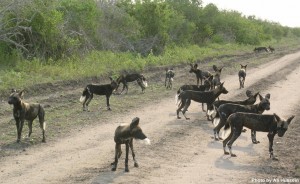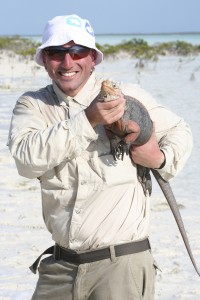With a grant from the Fund, the African Wild Dog Conservancy has confirmed the existence of a significant and widely distributed wild dog population in the North East and Coast Provinces of Kenya, from just north of the equator to the Indian Ocean, and near the Kenya/Somalia border region to Tsavo National Park. This wild dog population was previously unknown to the international conservation community.
Given the limited availability of water for human settlement, relatively low density of people, and that the dominate ethnic group living in much of the core area does not hunt game (wild dog prey species), this region is a potential long-term stronghold for this endangered canid.
Also promising, interviews with locals indicate that wild dogs accounted for only 4% of overall livestock losses to predators; approximately half of those losses occurred in one area. All reported losses due to wild dogs occurred while grazing, not in bomas where livestock is kept. This information will be incorporated into AWD’s education outreach program.
Overall, the program is very interesting and we encourage you to visit AWD’s website to learn more about their project at http://www.awdconservancy.org/




